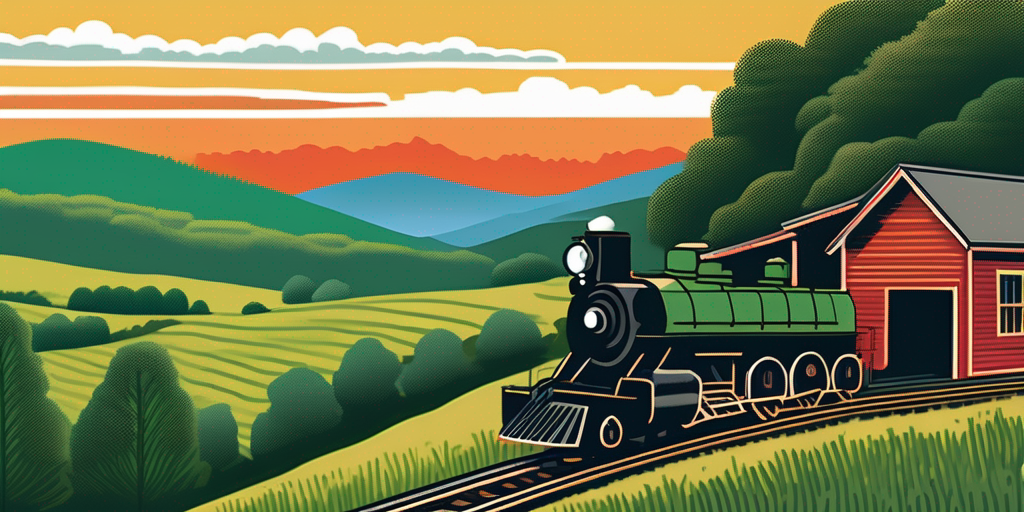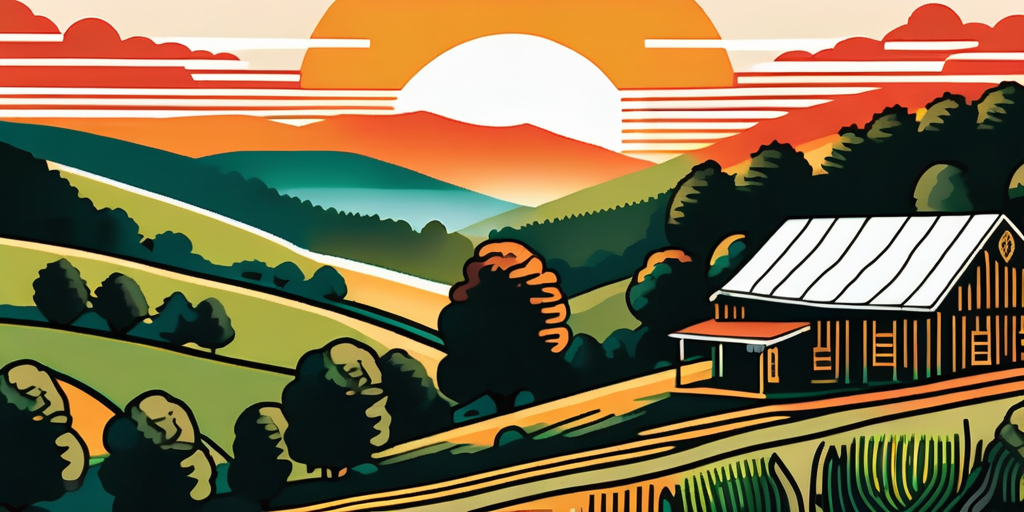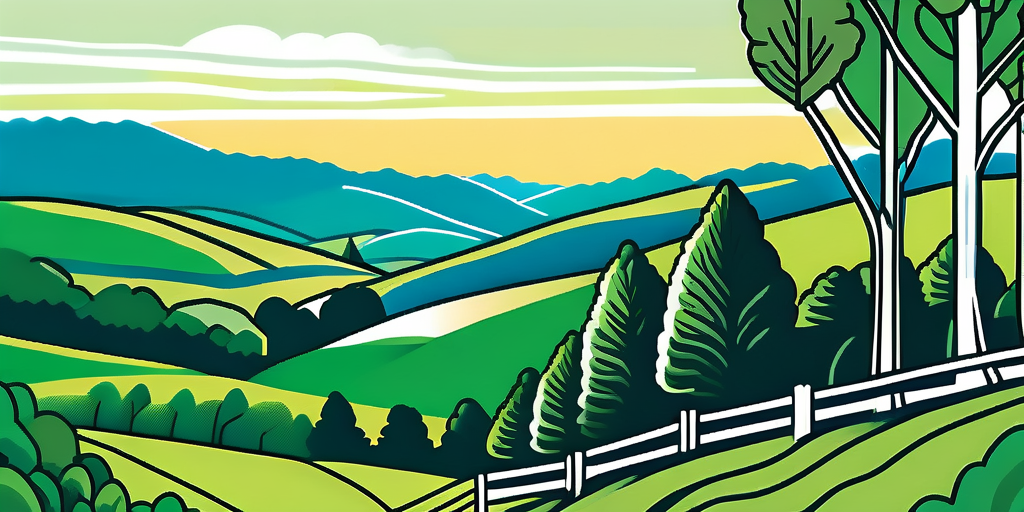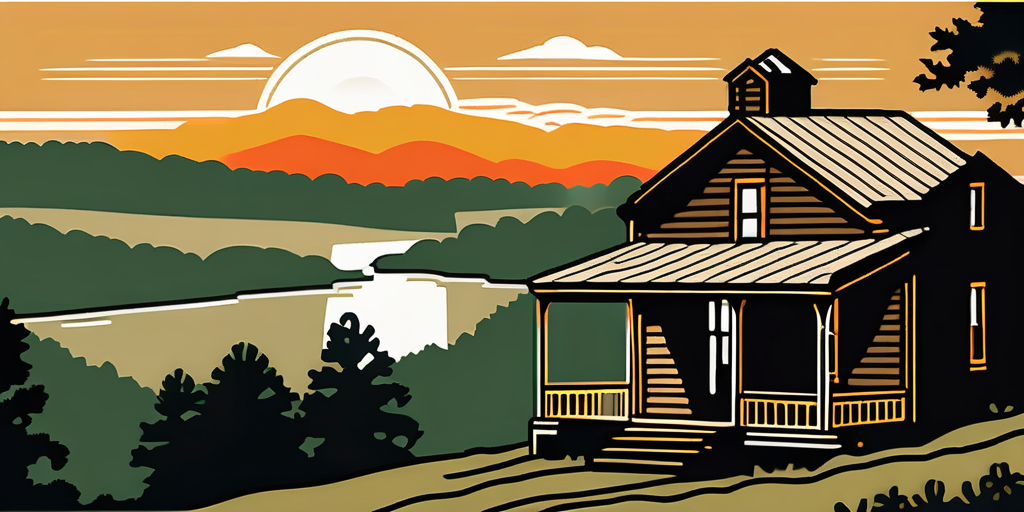
If you think about East Tennessee, what often comes to mind are its stunning natural landscapes, vibrant communities, and of course, its rich history. The region's past is a tapestry woven with tales of pioneers, revolutionary battles, and cultural traditions that still resonate today. It's this unique blend of history and natural beauty that, together, adds so much appeal to Tennessee National. Let's dive into the depths of East Tennessee's rich heritage and see how it shapes the area's allure.
East Tennessee is more than just a pretty face; it’s a region steeped in history that dates back to well before the state was even established. The landscapes we admire today are a direct reflection of the lives lived and events that transpired in them. From ancient Native American tribes to European settlers and into modern times, East Tennessee has been a focal point of change and development.
The early settlers, primarily of Scotch-Irish descent, arrived in the 18th century and brought with them traditions and customs that shaped the region's culture. They forged a life in the rugged mountains, relying heavily on agriculture and commerce. Their pioneering spirit is still palpable; you can find remnants of their way of life in the local festivals, crafts, and even the culinary scenes. This early influence laid the groundwork for community pride, self-sufficiency, and resilience.
These settlers established vital trading routes and communities that, even today, serve as cultural touchstones. Towns like Jonesborough and Newport not only offer historical insights but also embody the spirit of East Tennessee's development. Walking through these towns feels like stepping back in time, where the stories of ancestors are shared through tales and architecture. The annual storytelling festival in Jonesborough, for instance, celebrates this rich oral tradition, drawing visitors from afar to hear the echoes of the past come alive through the art of storytelling.
When you delve into the Civil War era, East Tennessee's role becomes clear. It was a crucial battleground and a dividing line for loyalties. Many residents found themselves caught between Union and Confederate sympathies, leading to intense battles and fierce skirmishes throughout the region. Places like Knoxville witnessed significant military strategies that influenced the war's outcome.
The scars left from this turbulent time are still visible today. Museums and historical landmarks are scattered throughout the area, allowing residents and visitors alike to honor and remember the past. The stories of local heroes, battles fought, and the resilience of the communities make East Tennessee’s Civil War history a vital part of its identity. The East Tennessee Historical Society, located in Knoxville, serves as a treasure trove of artifacts and documents, providing deeper insights into the lives of those who lived through this tumultuous period. Their exhibitions often highlight personal narratives that bring a human element to the historical events, reminding us of the sacrifices made by ordinary people.
The Industrial Revolution brought a wave of change to East Tennessee. As industries grew, towns expanded, transforming the local economy. Railroads connected remote areas to larger cities, allowing for easier transport of goods and people. This shift not only fueled economic growth but created job opportunities that attracted even more settlers.
If you stroll through towns such as Morristown or Greeneville, you’ll see this evolution reflected in the architecture and infrastructure. Once simple rural communities have blossomed into vibrant towns that maintain a historical charm while embracing modern advancements. What's interesting is how the remnants of this industrial past are cherished and preserved amid progress—an acknowledgment of the journey that has led East Tennessee to where it is today. The annual Heritage Festival in Greeneville showcases this blend of old and new, featuring local artisans, historical reenactments, and exhibits that celebrate both the industrial achievements and the cultural heritage of the region. This event draws crowds eager to experience the rich tapestry of East Tennessee's history, reminding us that while progress is essential, the past continues to shape the identity of the community.
Cultural heritage plays a monumental role in defining East Tennessee’s character. A unique fusion of traditions, arts, and delectable cuisine come together to create a tapestry that celebrates the region's diverse heritage.

From bluegrass music that echoes through the valleys to folk art that adorns local galleries, East Tennessee is rich in customs and traditions. Festivals celebrate local artisans, and community gatherings often tell age-old tales passed down through generations. The famous Appalachian fiddles and dulcimers not only serve as instruments but also as symbols of the region's identity.
These traditions contribute significantly to the community spirit, fostering connections between generations while showcasing the artistic talents thriving in the area. Notable events, like the National Storytelling Festival in Jonesborough, bring together people from all walks of life, celebrating the art of storytelling that has shaped the region's history. Additionally, the region's craft fairs and farmers' markets are vibrant hubs where local artisans display their handmade goods, from intricate quilts to hand-carved wooden toys, further enriching the cultural landscape.
No discussion about East Tennessee would be complete without mentioning its rich music scene. The region is known as the birthplace of countless music genres, particularly country and bluegrass. Venues like the Tennessee Theatre in Knoxville and the Grand Ole Opry in Nashville hold a treasure trove of musical history that resonates across the nation.
Local artists often perform at community events and festivals, sharing their talents and honoring the musical legacies of artists who came before them. The annual Bristol Rhythm & Roots Reunion is one such celebration that highlights the area’s rich musical heritage, drawing in thousands of attendees from across the country. Beyond the festivals, intimate venues and local bars often host open mic nights, where budding musicians can share their original compositions, ensuring that the spirit of creativity remains alive and well in the community.
East Tennessee's culinary landscape is a delightful reflection of its history and culture. Traditional dishes such as cornbread, biscuits, and collard greens tell stories of the region's agrarian roots. Local cooks and chefs are committed to preserving these recipes while also infusing modern culinary techniques, creating dishes that both honor the past and celebrate innovation.
Farm-to-table initiatives highlight the rich agricultural heritage of the area, encouraging sustainable practices that support local farmers and artisans. Restaurants like The Tomato Head and Blackberry Farm are renowned not only for their delicious offerings but also for their commitment to using local ingredients that highlight the best of East Tennessee’s bounty. Moreover, the region is home to a burgeoning craft beverage scene, with local breweries and distilleries producing unique beers and spirits that reflect the flavors of the land, further enhancing the culinary experience for both residents and visitors alike.
The breathtaking landscapes of East Tennessee are dotted with trails, rivers, and mountains that attract nature lovers from near and far. Yet, it’s not just the visuals; it’s the deep connection many feel to these natural wonders that enhances the overall charm of the area.

The Great Smoky Mountains are perhaps the crown jewel of East Tennessee's natural beauty. With their rolling hills and misty valleys, these mountains attract millions of visitors each year. The biodiversity found here is astounding; hikers often encounter unique flora and fauna that aren’t found anywhere else in the world.
Beyond the visible beauty, the Smokies are steeped in history. They hold stories of early settlers, the displacement of Native American tribes, and the establishment of the national park itself, which brings a sense of reverence to those who tread its trails. The park is more than a recreational area; it's a living museum of East Tennessee's heritage. As visitors traverse the numerous hiking paths, they may stumble upon remnants of old homesteads and cemeteries, each telling a story of resilience and adaptation in the face of nature's challenges.
Flowing gracefully through the region, the Tennessee River has been a lifeline for communities since the days of the early settlers. Its banks were once bustling with trade and transportation, and today it serves as a hotspot for recreational activities like fishing, kayaking, and boating.
The river's rich history includes its role in the Civil War and its importance in developing towns along its route. Numerous parks and scenic spots along the river offer visitors a chance to relax, fish, or enjoy a picnic while taking in breathtaking views of the surrounding landscapes. The river also plays a crucial role in the local ecosystem, supporting a variety of fish species and providing habitat for migratory birds. Annual events, such as fishing tournaments and river clean-ups, foster community spirit and encourage sustainable practices that protect this vital waterway.
East Tennessee is home to an astonishing array of wildlife and plants. The region's varied climates and elevations create numerous ecosystems, hosting creatures from black bears to colorful songbirds. Nature enthusiasts flock to East Tennessee not only to enjoy the lively outdoor adventures but also to experience its environmental significance.
Organizations work tirelessly to protect and preserve this biodiversity, emphasizing the importance of maintaining the region's natural heritage. Volunteer efforts encourage local communities to engage with their natural surroundings and foster a deep appreciation for East Tennessee’s rich ecological tapestry. Educational programs and guided nature walks help visitors understand the delicate balance of these ecosystems, highlighting the role that each species plays in the larger web of life. Additionally, conservation initiatives aim to restore native habitats and promote sustainable land use, ensuring that future generations can continue to marvel at the natural wonders of East Tennessee.
The intertwining of history and nature in East Tennessee creates a unique experience for visitors and locals alike. It's the stories behind every rock, tree, and building that transform Tennessee National from simply a scenic destination into a place of deep meaning.

Tennessee National boasts a wealth of historical sites that are not only educational but also incredibly engaging. From Civil War battlefields to ancestral homesteads, these sites serve as tangible links to the past, making history come alive for visitors. The interpretive programs offered at places like the Civil War Trail highlight personal accounts of those who lived through the times, providing a compelling narrative about the region's heritage. Additionally, the preservation efforts of local historians ensure that these stories are not just told but experienced, allowing visitors to walk in the footsteps of those who shaped the area. Guided tours often include reenactments and storytelling sessions that immerse participants in the historical context, making each visit a memorable journey through time.
Today's visitors expect modern amenities alongside historical charm. East Tennessee delivers this uniquely well. You can enjoy a cozy bed and breakfast steeped in history while having access to Wi-Fi and gourmet dining experiences nearby. Local businesses take great pride in balancing tradition with innovation, ensuring every experience feels genuine yet comfortable. For instance, many restaurants feature menus that highlight locally sourced ingredients, often inspired by traditional recipes passed down through generations. This culinary fusion not only satisfies the palate but also connects diners to the region's agricultural roots, enhancing the overall experience of exploring East Tennessee.
Local events and festivals often embrace the historical narratives that define the region. Events like the Frontier Day in Morristown and the East Tennessee History Center’s annual celebration are perfect examples of how history is celebrated and preserved through community efforts. They bring residents together, allowing them to honor their roots while inviting visitors to engage with the rich tapestry of East Tennessee heritage. These gatherings often feature traditional music, crafts, and storytelling, showcasing the skills and talents of local artisans who keep age-old practices alive. Moreover, interactive exhibits allow attendees to participate in historical demonstrations, such as blacksmithing or weaving, providing a hands-on understanding of the past that resonates with both young and old.
As the seasons change, so do the themes of these events, reflecting the agricultural cycles and historical milestones of the area. For example, autumn harvest festivals celebrate the bounty of local farms, while springtime events often commemorate the region's role in the Civil War. Each festival not only serves as a reminder of the area's rich history but also fosters a sense of community, as families and friends gather to share in the joy of their heritage. Through these vibrant celebrations, East Tennessee continues to weave its historical narrative into the fabric of daily life, ensuring that the past is never forgotten but rather cherished and embraced.